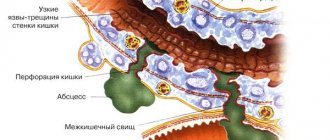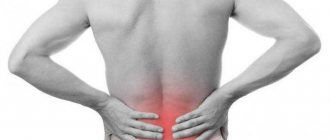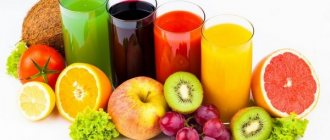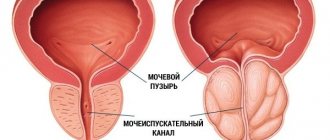Vitamins are substances that are essential for the normal functioning of the body. Although they are not nutrients, if the body receives or produces them in insufficient quantities, the functioning of all internal organs and systems is disrupted.
Vitamin deficiency appears due to a lack of vitamins, mainly multiple deficiencies - multivitaminosis. The main task of treatment:
- Replenish vitamin deficiency
- And/or eliminate diseases that are responsible for poor absorption of vitamins or insufficient production of them by the body
What is vitamin deficiency
Vitamin deficiency disease in most cases occurs due to poor nutrition. A poor diet will most likely lead to the development of this pathology. All this is due to the fact that there is no product that contains all the vitamins at once.
In addition, vitamin deficiency can be caused by gastrointestinal diseases and subsequent digestive problems. Changes in intestinal microflora affect the amount of vitamins in the body. With dysbacteriosis, beneficial substances from food are poorly absorbed, and the production of vitamins by the body's internal resources is disrupted.
Vitamin deficiency can also be caused by taking blood thinners during the treatment of thrombosis.
Autumn vitamin deficiency is not easy to bear when, after a summer abundance of fresh fruits and vegetables, you have to switch to canned products. In addition, it is worth considering that when stored in cellars or elsewhere, fruits lose 2/3 of their vitamins. The situation is complicated by the fact that in autumn and winter the daylight hours become shorter, and there is clearly a shortage of sun.
Spring vitamin deficiency is also very serious; the body requires more useful substances to awaken from hibernation, but many do not pay due attention to this.
Clinical researches
A clinical study conducted jointly with the Union of Pediatricians of Russia proves the high efficiency, safety and tolerability of products for daily skin care of children with mild and moderate forms of atopic dermatitis and during remission, accompanied by a decrease in the quality of life of patients. As a result of therapy, the following effects of the La-Cri cleansing gel were noted:
- Gentle skin cleansing;
- Relieving redness and itching;
- Skin restoration;
- Skin nutrition.
Sources:
- B.A. Shamov, I.G. Safiullina, A.B. Beshimova, T.B. Shamov, Differential diagnosis of atopic dermatitis, Journal of Practical Medicine, 2011
- Fokina R.A., Atopic dermatitis: stages of development of classification forms, Siberian Medical Journal, 2007
- A.N. Pampura, A.A. Chuslyaeva, Modern approaches to the treatment of atopic dermatitis in children
Photos of vitamin deficiency
You can see photos of vitamin deficiency on our website.
Photo album on the diseaseTypes and types of vitamin deficiency
The deficiency may be permanent or temporary.
The causes of chronic vitamin deficiency include:
- Poor, monotonous diet
- Constant malnutrition
Temporary vitamin deficiency practically does not appear in the summer, during the season of vegetables and fruits and warm sun; most often people suffer from it in early spring or late autumn.
Vitamin deficiency disease is divided into 4 groups:
- Exogenous (nutritional vitamin deficiency)
- Endogenous
- Ahrestic
- Dissimilative
Exogenous vitamin deficiency occurs when there is a complete or partial absence of vitamins in food products. Sometimes the disease occurs due to an irrationally composed diet, when the foods consumed are antagonists and destroy the vitamin component.
When vitamins are not absorbed due to diseases of the gastrointestinal tract and metabolic disorders, the disease is called endogenous vitamin deficiency.
In the asrestic form of the disease, vitamins and minerals are poorly absorbed by the cells and tissues of the body.
With dissimilation vitamin deficiency, beneficial substances are destroyed in the body itself.
How to overcome vitamin deficiency and help the body after winter
Spring is the time for nature to awaken, the sun begins to appear more often, and temperatures approach zero, but despite this, many of us notice that the body as a whole feels weak and exhausted. Victoria Agaltsova, a general practitioner at city clinic No. 64 of the Moscow Health Department, told RIA Novosti how to cope with vitamin deficiency, what products to dilute your diet, and what habits it is better to give up.
Avitaminosis or hypovitaminosis?
As the doctor said, there are two concepts - hypovitaminosis or vitamin deficiency - which hide the seasonal lack of vitamins in autumn and spring. However, hypovitaminosis is characterized by the fact that certain vitamins are present in the body in insufficient quantities, but are still present. Vitamin deficiency is a more serious disorder in the functioning of the human body. With vitamin deficiency, there is a critical shortage or complete absence of one or more vitamins.
“There can be many common causes of vitamin deficiency of any kind: poor diet, lack of fresh vegetables and fruits, herbs, cereals, meat, eggs, milk or cottage cheese; diseases of the gastrointestinal tract, in which vitamins are not absorbed by the intestinal villi and simply do not enter the blood,” said Agaltsova.
This can also happen due to bad habits that interfere with the synthesis and absorption of vitamins. The causes of vitamin deficiency can be chronic stress, constant fatigue and taking medications that “turn off” the effect of vitamins.
Various changes in the body may indicate that there are not enough vitamins. So, according to Agaltsova, hair becomes dull, splits excessively and begins to fall out heavily, nails become brittle and begin to peel, skin becomes dry and pale, sometimes a little grayish, lips quickly dry out and crack, and herpes may also appear on them.
“Vision becomes less sharp and sometimes worsens significantly. Blood may appear when brushing your teeth, as gum bleeding increases; a person begins to suffer from colds and acute respiratory viral infections frequently, and old chronic diseases become worse and more frequent,” the doctor added.
She also noted that often a person with vitamin deficiency is in a bad mood, he is apathetic, has difficulty getting up in the morning, and brain function deteriorates.
What vitamins does the body lack?
If a person begins to notice that his visual acuity is impaired, there is a burning sensation in the eyes and dryness, the skin is flaking, the hair has become dull, the teeth have acquired a yellowish tint, all this may indicate a lack of vitamin A in the body. In order to compensate for the vitamin deficiency, one should include milk and dairy products, liver, seafood, as well as currants, gooseberries, apricots, carrots and spinach in your diet. At the same time, as the doctor noted, all products with vitamin A must be consumed daily, otherwise the treatment will be ineffective.
Agaltsova said that vitamin B1 deficiency is characterized by premature aging of the skin, muscle weakness, arrhythmia and respiratory failure. Skin itching, shortness of breath, and decreased appetite also appear. “The deficiency of thiamine is compensated by eating yeast, baked goods, wholemeal flour and vitamin complexes,” she said.
B2 deficiency manifests itself in loss of weight and appetite, skin lesions, inflammation of the internal oral cavity, and photosensitivity. The largest amount of the substance is found in cereals and peas, meat and milk. Vitamin B3, or niacin, affects the regulation of sleep - during the day a person wants to sleep, but at night suffers from insomnia. Also, its deficiency causes increased skin sensitivity, hair loss and bleaching, and depression. To make up for the deficiency, you need to eat a lot of greens, fruits and vegetables, dairy products and chicken eggs, as well as animal and chicken liver.
With a lack of vitamin B5, according to the doctor, the pigmentation of both skin and hair is disturbed - spots appear on the body, hair changes pigmentation and falls out significantly. A lot of pantothenic acid (B5) can be found in meat and fish, poultry, milk, vegetables, nuts and legumes.
“Lack of vitamin B6 causes attacks of nausea and cramps at night, causes cognitive dysfunction and even psychosis. It is replenished with egg yolks, liver and potatoes, spinach, carrots and nuts,” said Agaltsova.
Vitamin B9, or folic acid, when deficient in the body, is accompanied by anemia, weight loss, insomnia and severe headaches. If there is a lack of vitamin, you need to eat kidney and liver products, fresh vegetables and herbs, as well as grains and nuts.
Serious disorders such as psychosis or even paralysis, according to the doctor, can be caused by vitamin B12 deficiency. At the same time, replenishing the deficiency is problematic, since the substance is contained in products only in small quantities - it is practically absent in plants, and a little in meat products - in veal and beef liver, seafood and fish, as well as in lamb.
“Each vitamin from the group of B vitamins has its own specific symptoms. However, these substances must enter the body in a complex manner, and not separately, since they are closely interconnected,” Agaltsova emphasized.
Speaking about vitamin C, she said that with its deficiency, gum bleeding increases, caries develops, breathing problems appear and digestion is disrupted, and fatigue and weakness also increase. For treatment, it is necessary to introduce large doses of ascorbic acid into the diet, for example, through foods - vegetables and berries, black currants, tomatoes and spinach, or through tablets and injections.
If the human body lacks vitamin D, tooth decay, joint pain, cramps, stooping and weight loss may occur. To compensate for its deficiency, you should eat beef and pork liver, chicken eggs, dairy products and fatty fish. In addition, the doctor may prescribe ultraviolet irradiation and calcium supplements.
Agaltsova said that vitamin E is very dependent on the external and internal environment of the body and is easily destroyed under the influence of toxic substances such as alcohol or nicotine. With vitamin deficiency, the aging process accelerates, the skin quickly fades, and vision is impaired.
“For treatment, the patient is prescribed a diet rich in tocopherol (vitamin E): eggs, cabbage and spinach, celery and carrots. Very healthy vegetable fats - olive oil, sesame and flaxseed oil. Also, a large amount of tocopherol is found in herbs such as motherwort, mint and rose hips, rowan and sea buckthorn. Therefore, it is recommended to drink herbal teas from these plant mixtures,” she said, adding that fish oil, sea fish, almonds and nuts are also rich in this vitamin.
If you have a deficiency of vitamin H, which can be caused by taking antibiotics, you need to eat more soy and eggs, namely yolks, peas and cauliflower, liver and mushrooms.
Vitamin K deficiency, as the doctor said, is characterized by severe and prolonged bleeding even with tiny injuries, bleeding gums, digestive problems, anemia, general lethargy and weakness. In this case, you need to eat green cabbage and pork liver, broccoli and spinach; lamb and veal also contain some vitamins.
The best treatment for a disease is its prevention
In order not to have to treat hypovitaminosis or vitamin deficiency, it is necessary to carry out prevention. So, according to Agaltsova, you should eat healthy and varied foods, lead a healthy lifestyle, give up bad habits, as well as balance your daily routine and walk in the fresh air every day.
“It is necessary to promptly treat all emerging diseases, because they can lead to vitamin deficiency. For preventive purposes, drink multivitamin complexes in the autumn-spring season, take vitamins during the period when the body is as weakened as possible - in childhood, adolescence, during pregnancy and lactation, in old age,” the doctor concluded.
Link to publication: https://ria.ru/society/20180313/1516267369.html
The main causes of vitamin deficiency
There are 10 main reasons that lead to vitamin deficiency:
- Insufficient intake of vitamins from food
- Sugar abuse
- Refusal of animal food
- Pregnancy
- Dysbacteriosis
- Intestinal parasites
- Smoking, alcohol abuse
- Destruction of vitamins during storage or cooking
- Unfavorable environment
- Low body temperature
Diagnosis of hypovitaminosis
Symptoms of vitamin deficiency require immediate contact with a gastroenterologist. The doctor performs a physical examination of the patient and collects information for the medical history. The manifestations of the pathology are specific, so making a diagnosis in most cases does not cause difficulties.
Analysis of patient biomaterials in laboratory conditions allows us to assess the degree of vitamin deficiency and identify pathologies that could cause it.
Additional consultations with doctors are prescribed to the patient if he has chronic pathologies or is undergoing treatment with drugs that cause vitamin deficiency. The gastroenterologist takes into account the prescriptions of his colleagues when developing a therapeutic course for a child or adult.
Symptoms of vitamin deficiency in adults
- The skin becomes dry and flabby, and pigment spots appear on it.
- Dental problems, bleeding gums. The tongue becomes coated
- Dandruff, dull and lifeless hair
- Acne on the face
- Swelling of the face, nails and hands
- Body and sweat odor changes, and your breath begins to smell bad
- Peeling nails
- Increased sensitivity to sunlight, watery eyes, redness
- Disturbance of normal digestion
- Memory loss, problems concentrating
- Irritability, sleep problems
- Muscle and joint pain, often a person suffers from restless legs syndrome. He can't sleep because he's spinning his legs.
- Menstrual irregularities, problems conceiving a child
- Problems with potency
Symptoms of pathology
Symptoms of vitamin deficiency depend on several factors. The main group becomes a vitamin whose deficiency is observed in the human body. The clinical picture of the pathology is significantly influenced by the form of hypovitaminosis (mild, moderate, severe) and the patient’s age.
Common signs of all types of vitamin deficiencies are:
- decreased appetite;
- increased fatigue;
- drowsiness;
- irritability;
- attacks of nausea.
The first signs of pathology appear with a significant lack of vitamin in the diet of a child or adult.
| Deficiency vitamin | Symptoms |
| A | Visual impairment – twilight blindness, distorted color perception. The keratinization of the skin increases, the hair becomes thin and brittle |
| B1 (beriberi disease) | The skin becomes thinner and dry. The sensitivity of the legs is impaired, and fluctuations in body temperature are noted. The calf muscles often cramp. When reporting the form, shortness of breath, tachycardia and severe edema appear |
| B3 (pellagra) | The skin darkens and flakes intensely. The hands become covered with red, swollen spots, which are similar to manifestations of an acute inflammatory process. |
| B6 (hyporiboflavinosis) | Conjunctivitis develops. The red border of the lips dries out and peels, and cracks appear in the corners of the mouth. The tongue becomes crimson and shiny. There are teeth marks on his sides |
| B12 | Signs of anemia and atrophic gastritis develop. Foci of burning and tingling form on the tongue. Muscle tone weakens, the patient’s gait changes |
| C (scurvy) | The gums become swollen and bleed. The skin becomes thinner and becomes dry and flaky. Hemarthrosis of the knee joints develops, teeth become loose and fall out |
Do you have symptoms of vitamin deficiency?
Only a doctor can accurately diagnose the disease. Don't delay your consultation - call
Interaction of vitamin A with other drugs and vitamins
Vitamin A is recommended to be consumed together with vitamins E, B and macroelements such as phosphorus, potassium, calcium, zinc.
It should be remembered that not all vitamin complexes that you can find in pharmacies will contain the optimal ratio of micro and macroelements for your body, so you should be very careful when choosing them and it is highly advisable to consult with a specialist before using them.
Also, do not forget that when taking vitamin A, you should not drink alcohol. Combining retinol with alcoholic beverages can lead to serious liver problems and other diseases. Doctors also do not recommend using medicinal laxatives to avoid poor absorption of retinol.
How much vitamin A should you consume per day?
The body requires from 600 to 2800 mcg of vitamin A per day, depending on the age, weight and condition of the person. The permissible daily portion of this substance is 3000 mcg per day.
According to nutritionists, men should consume 900 mcg of vitamin A per day, women 800 mcg, children from 4 to 8 years old - 400 mcg, babies under three years old - 300 mcg, infants from 6 to 12 months 500 mcg, and newborns - 400 mcg.
During pregnancy, the daily requirement for the vitamin increases to 2800 mcg. During breastfeeding, mothers also need to provide 2800 mcg of retinol, since the newborn receives all biologically active compounds from breast milk for up to six months.
Why do we need vitamin A?
Vitamin A is available in two forms - carotene or provitamin A and a complete vitamin complex, which is commonly called retinol. In both variants, this biologically active substance is fat-soluble.
The main functions of vitamin A are:
- Normalization of the redox balance by eliminating oxidation processes, which leads to a slowdown in the aging of the body.
- Participation in the immune response.
- Stimulation of the work of retinal cells.
- Regulates cell growth.
Importance of Folic Acid
Folic acid is actively involved in various processes occurring in the body: in the synthesis of neurotransmitters and components of cell membranes, in the control of cell division. It is especially important to monitor folic acid levels for women during pregnancy.
. Folic acid is necessary for the normal development of the neural tube in the fetus, which directly affects the health of the unborn baby.
You can find out about a lack of folic acid in the body by the following symptoms:
- increased irritability;
- decreased appetite;
- absentmindedness;
- fatigue for no apparent reason.
Of course, the listed symptoms may be characteristic of a number of other diseases, so folic acid deficiency can only be accurately diagnosed on the basis of a blood test. To prevent folic acid deficiency, women are advised to take folic acid tablets.
still at the stage of pregnancy planning.
Vegetarians and vegans who avoid eating animal products are more likely to be deficient in vitamin B12
, so they need to either take regular courses of B vitamins or add foods fortified with vitamin B12 to their diet. Products artificially enriched with vitamins have special markings on their packaging.
How does a lack of vitamins manifest itself?
In children and adults, vitamin deficiency can manifest itself in different ways:
- children suffer from ARVI and other viral diseases, eat poorly and are capricious;
- children and adolescents are inattentive at school, irritable and cannot concentrate;
- adults get tired and can’t cope at work, notice negative changes in appearance;
- In older people, chronic diseases worsen or new diseases arise.
Vitamin deficiency often appears on the hands, face and skin. This could be a red rash, herpes or cracks in the corners of the lips, dry or irritated skin. The more obvious the signs, the more important it is to visit a doctor as quickly as possible.
What vitamins should you take?
It is impossible to answer this question without a preliminary examination. Symptoms of vitamin deficiency can be easily confused with symptoms of other diseases, including more serious ones, so do not rush to conclusions. If you cannot boast of a balanced diet and the desire for a healthy lifestyle, then you are at risk, but this is not a reason for self-medication.
Only a doctor, based on the test results, will be able to prescribe you a suitable vitamin-mineral complex or a separate vitamin in “pure” form, so as not to provoke an overabundance of other vitamins. The shortage may also be seasonal. For example, in the autumn-winter period you need to monitor your vitamin C levels
to strengthen the immune system. The most vitamin C is found in berries and fruits, and not even in lemon and other citrus fruits, but in currants, sea buckthorn, rose hips, gooseberries and rowan. Some vegetables, such as bell peppers, are also rich in vitamin C.
If you do not want to resort to taking vitamin complexes, stock up on natural vitamins for the winter. Modern fast freezing technology allows you to preserve fruits and berries almost in their original form. Compotes, fruit drinks and desserts made from frozen berries will be almost as healthy as those made from fresh ones, and you will have summer on your table all year round.










